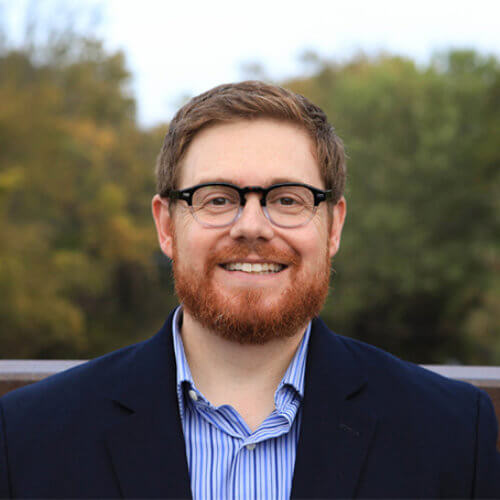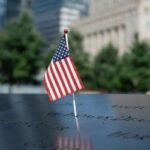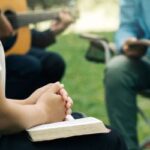‘We would eventually worship in the very place Saddam had ordered out crimes against humanity’
The life and ministry of the vicar of Baghdad reminds us suffering can be redeemed.
After serving as a canon at Coventry Cathedral, in Coventry, West Midlands, England, Andrew White moved to Baghdad to become an Anglican chaplain in Iraq. Serving the only Anglican church in Iraq, White was affectionately nicknamed the “Vicar of Baghdad.”
In his work as president of the Foundation for Relief and Reconciliation in the Middle East, White served refugees who fled their countries due to violence and war. Though White lives with multiple sclerosis and has done relief and reconciliation work for the last 18 years in some of the most dangerous places in the world, he remains gregarious and witty.
We were excited to have him share his experiences with the students in our research lab at the Humanitarian Disaster Institute a few years back. White shared stories of some of his initial groundbreaking meetings with religious and political leaders, including being invited into the home of the founder of Hamas, where a car sat in the living room—just in case the need might arise to “leave in a hurry.” Even when ISIS swept terror across the Middle East in 2014, White invited the leaders to dinner—and was told that they would come, but they would not leave without taking his life.
RESILIENT FAITH: Cultivating hope through trials and traumas
White has spent his ministry caring for the vulnerable who suffered most, the innocent survivors caught in the middle of terrible conflict zones. He cared for those who had lost everything. In a situation in which many would be tempted to despair, he offered the living hope of God’s real presence.
“The Lord is here,” he promised. “His spirit is with us. When you have lost everything, Jesus is all that’s left.” He went on to describe the terror that had occurred under the rule of Saddam Hussein and after his ousting. But he also shared how God can redeem places of suffering. He added, “We would eventually worship in the very place Saddam had ordered out crimes against humanity and turned his pool into a baptismal.”
He noted that he always begins the difficult work of reconciliation by simply convincing one person to meet with another. “The American poet Longfellow once said, ‘Who is my enemy? It is the person whose story I have not heard.’ A major part of our work is enabling one side to hear the story of another,” he says.
A willingness to step out in faith is also a prerequisite. “In all of our work, we have to transcend beyond what is conceived as being safe. We have to be prepared to take a risk so that we may get to love the other—and get them to love us.”
What does it look like for White to love his enemies? It is always personally costly. “You’ve got to be truly sacrificial in your love. I always try to get alongside my enemies. I always try to invite them to dinner.” “When I’m in the midst of situations, and I’m sitting down with terrorist leaders, I think, ‘Lord, I don’t know what to say.’ Often I pray, ‘Lord you said you would send your spirit. Take me over. Do it.’ And He does, so often.”
By his own admission, White’s greatest asset in bringing sworn enemies together is his genuine love for all people. “In my life’s work, I would say that the greatest thing God has given me is the ability to love—that’s the most important thing I’ve got,” he said. He notes he always begins the difficult work of reconciliation by simply convincing one person to meet with another. “The American poet Longfellow once said, ‘Who is my enemy? It is the person whose story I have not heard.’ A major part of our work is enabling one side to hear the story of another,” he says.
Despite facing his own personal struggles of multiple sclerosis and having ministered among some of the most dangerous mass disaster conflict zones in the world, Cannon White understood that God is with us in our suffering. He knew intimately not only that God is present when we suffer but also that are suffering can be redeemed. This does not mean that the healing process will be easy, nor does it mean our lives are guaranteed to go back to “normal.”
However, I truly believe God is there with us through it all.
 About The Author
About The Author
Dr. Jamie Aten is the founder and executive director of the Humanitarian Disaster Institute and Blanchard Chair of Humanitarian & Disaster Leadership at Wheaton College in Wheaton, Illinois. His latest book is “A Walking Disaster: What Surviving Katrina and Cancer Taught Me About Faith and Resilience” (Templeton Press). In 2016 he received the FEMA Community Preparedness Champion award at the White House. Follow him on Twitter, Instagram or jamieaten.com.



